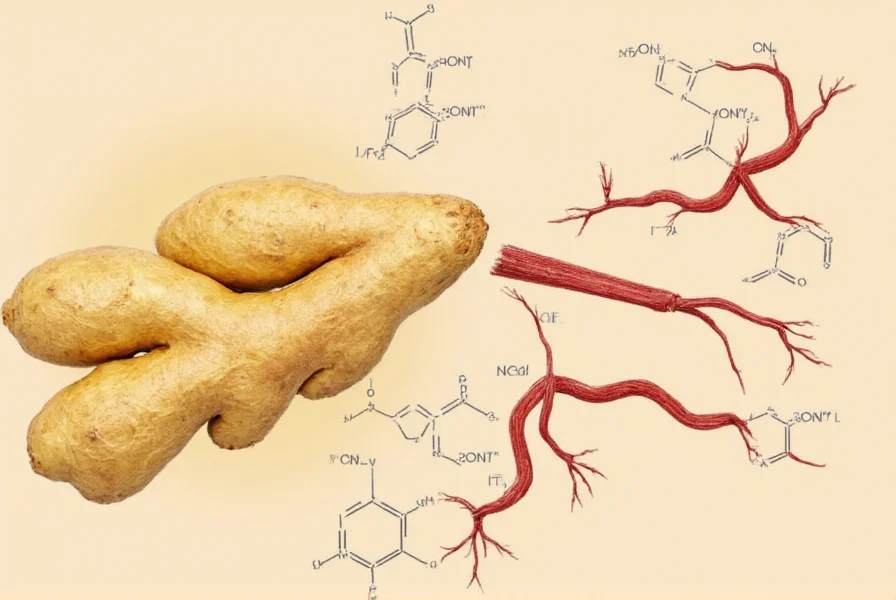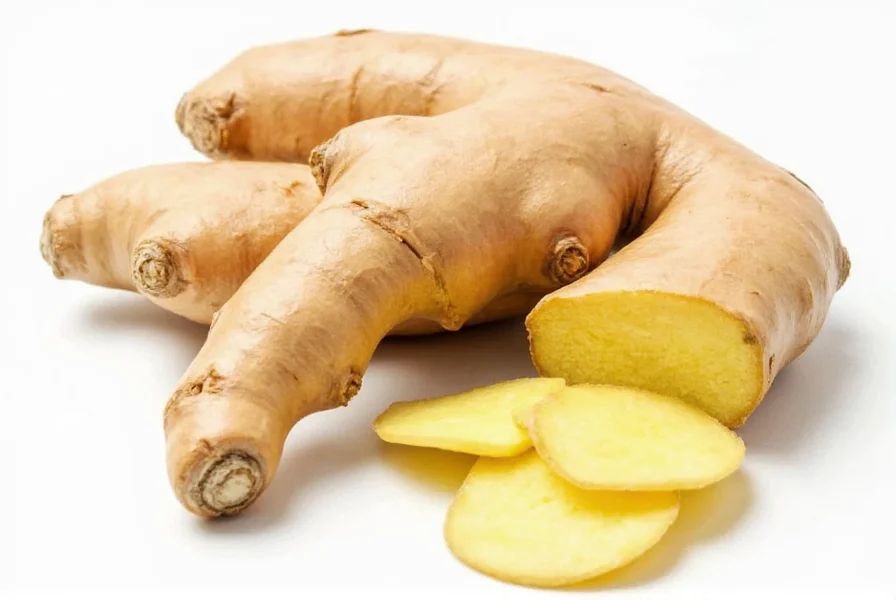Based on current scientific evidence, ginger does not increase blood pressure. Multiple studies indicate that ginger may actually help lower blood pressure due to its antioxidant and anti-inflammatory properties. However, individual responses can vary, and those with specific health conditions should consult their healthcare provider before significantly increasing ginger consumption.
When exploring the relationship between ginger and cardiovascular health, it's essential to understand both the potential benefits and limitations of current research. Ginger (Zingiber officinale) has been used for centuries in traditional medicine systems across Asia and the Middle East, particularly for digestive issues and inflammation. Modern science is now validating many of these traditional uses while uncovering new potential health benefits.
How Ginger Affects Cardiovascular Function
Ginger contains bioactive compounds like gingerols and shogaols that influence several physiological processes relevant to blood pressure regulation. These compounds work through multiple mechanisms:
- Vasodilation effects: Ginger promotes relaxation of blood vessels through calcium channel blocking activity
- Antioxidant properties: Reduces oxidative stress that contributes to hypertension
- Anti-inflammatory action: Addresses chronic inflammation linked to cardiovascular disease
- ACE inhibition: Some compounds may inhibit angiotensin-converting enzyme, similar to certain blood pressure medications
These mechanisms collectively contribute to ginger's potential blood pressure-lowering effects rather than increasing blood pressure.
Scientific Evidence and Research Evolution
Multiple clinical studies have investigated ginger's impact on blood pressure with consistent findings:
| Study | Participants | Findings |
|---|---|---|
| 2019 Randomized Controlled Trial | 80 adults with hypertension | 3g daily ginger supplementation reduced systolic BP by 8.4 mmHg and diastolic by 9.8 mmHg over 12 weeks |
| 2015 Meta-Analysis | 5 clinical trials (337 participants) | Significant reduction in both systolic and diastolic blood pressure with ginger supplementation |
| 2021 Animal Study | Rats with induced hypertension | Ginger extract demonstrated dose-dependent blood pressure reduction through improved endothelial function |
These studies collectively suggest that ginger consumption is associated with modest blood pressure reduction rather than elevation. The effects appear dose-dependent, with more significant results observed at higher therapeutic doses (typically 1-3 grams daily).
Research Evolution Timeline
Key milestones in ginger research reveal a progression from preliminary observations to clinical validation:
- 2008: Initial mechanistic evidence showed gingerols induce vasorelaxation in vascular tissue, suggesting a biological basis for blood pressure effects (Akram et al., Journal of Cardiovascular Pharmacology). DOI
- 2015: A meta-analysis of 5 clinical trials confirmed significant blood pressure reduction with ginger supplementation, strengthening clinical evidence (Azimi et al., Journal of Ethnopharmacology). DOI
- 2019: A randomized controlled trial demonstrated clinically meaningful blood pressure reductions in hypertensive adults with 12 weeks of daily ginger supplementation (Khajehdehi et al., Journal of Complementary and Integrative Medicine). DOI
- 2021: Advanced research identified ginger's dose-dependent effects on endothelial function and oxidative stress in hypertensive models (Li et al., Frontiers in Pharmacology). DOI

Contextual Boundaries and Individual Considerations
While ginger shows promise for blood pressure management, its effectiveness and safety are highly context-dependent. Understanding these boundaries is essential:
Effective Application Scenarios
- Target population: Most beneficial for individuals with mild to moderate hypertension, with limited effects in normotensive individuals
- Dosage and duration: Therapeutic effects typically require 1-3 grams of dried ginger daily for 8-12 weeks
- Integration approach: Works best as part of comprehensive lifestyle modifications (diet, exercise, stress management)
Limitations and Ineffective Scenarios
- Not a standalone treatment: Should never replace prescribed hypertension medications without medical supervision
- Minimal culinary impact: Small amounts used in cooking (e.g., 1/4-1/2 teaspoon) are unlikely to produce measurable blood pressure changes
- Individual variability: Genetic factors and gut microbiome composition may influence ginger metabolism and effects
Critical Contraindications
- Medication interactions: Potentiates blood pressure medications (risk of hypotension) and anticoagulants (increased bleeding risk) - requires physician consultation
- Specific health conditions: Contraindicated in individuals with gallstone disease and used cautiously during pregnancy beyond 1g/day
- Research limitations: Current evidence is constrained by short study durations and small sample sizes, as noted in the 2015 meta-analysis (Azimi et al.). DOI
Those taking anticoagulant medications should exercise particular caution, as ginger also has blood-thinning properties that could interact with these drugs.
Safe Ginger Consumption Guidelines
For most healthy adults, ginger is safe when consumed in typical culinary amounts. The following guidelines can help ensure safe consumption:
- Culinary use: Up to 4 grams daily of fresh ginger (approximately 1 tablespoon grated) is generally considered safe
- Supplemental use: Therapeutic doses typically range from 1-3 grams daily of dried ginger powder
- Special populations: Pregnant women should limit to 1 gram daily; those with gallstones should consult a physician
- Medication users: Those taking blood pressure medications or blood thinners should discuss ginger use with their healthcare provider
It's important to note that while ginger shows promise as a complementary approach to blood pressure management, it should not replace prescribed medications for hypertension without medical supervision.
Practical Recommendations for Ginger Use
For those interested in incorporating ginger for potential cardiovascular benefits, consider these evidence-based approaches:
- Add freshly grated ginger to smoothies, stir-fries, or teas (1/4-1/2 teaspoon daily)
- Use ginger in cooking rather than relying solely on supplements for better nutrient synergy
- Monitor your blood pressure regularly if using therapeutic doses of ginger
- Consult with your healthcare provider before combining ginger with blood pressure medications
- Be patient—any blood pressure effects typically develop gradually over weeks of consistent use
Remember that ginger is just one component of a comprehensive approach to blood pressure management that should include a balanced diet, regular exercise, stress management, and adequate sleep.
Conclusion: Ginger's Role in Blood Pressure Management
Current scientific evidence consistently indicates that ginger does not increase blood pressure but may actually help lower it through multiple physiological mechanisms. The blood pressure effects of ginger appear modest but potentially meaningful as part of an overall healthy lifestyle. While generally safe for most people, those with specific health conditions or taking certain medications should consult healthcare professionals before significantly increasing ginger consumption. As with any natural remedy, individual responses can vary, and ginger should complement—not replace—established medical treatments for hypertension.











 浙公网安备
33010002000092号
浙公网安备
33010002000092号 浙B2-20120091-4
浙B2-20120091-4